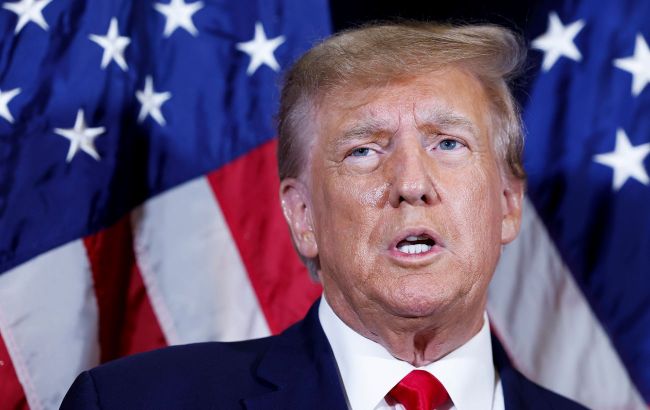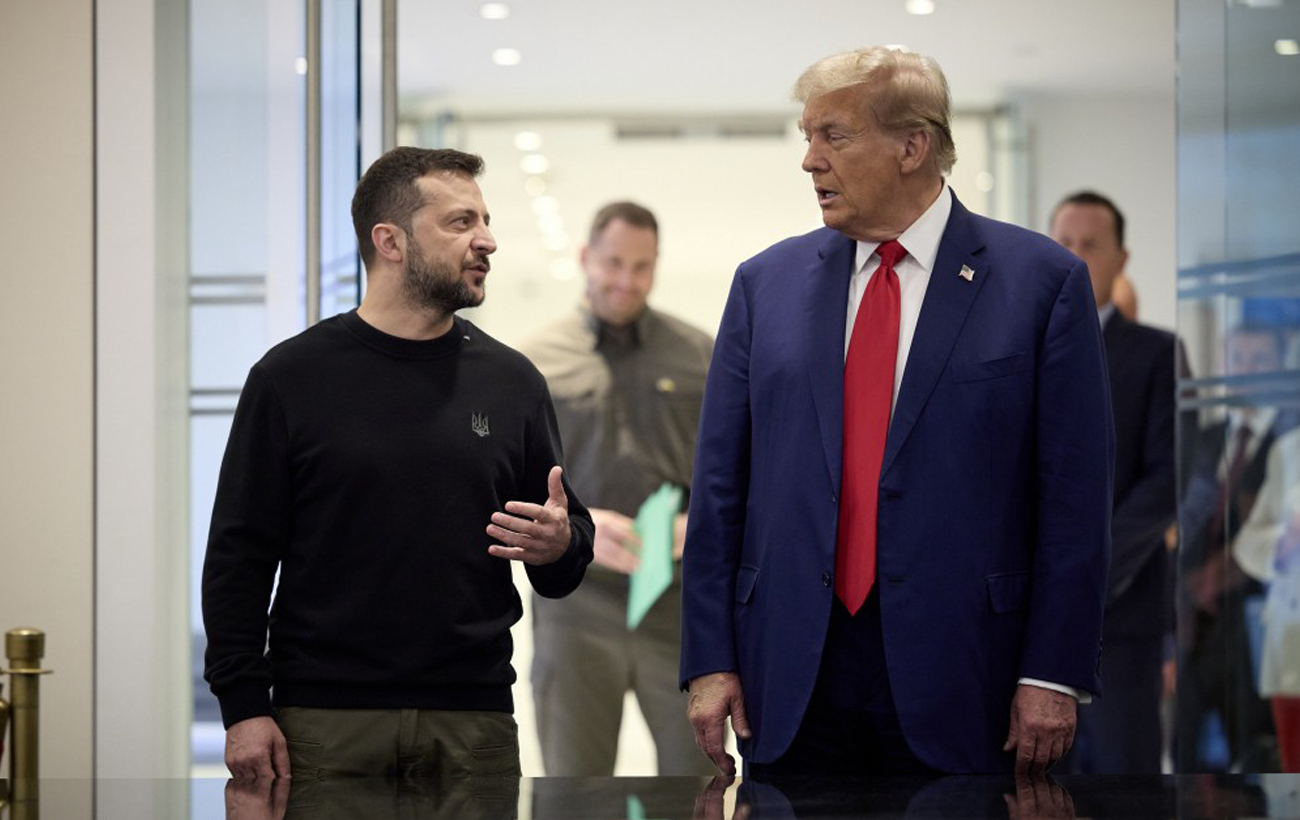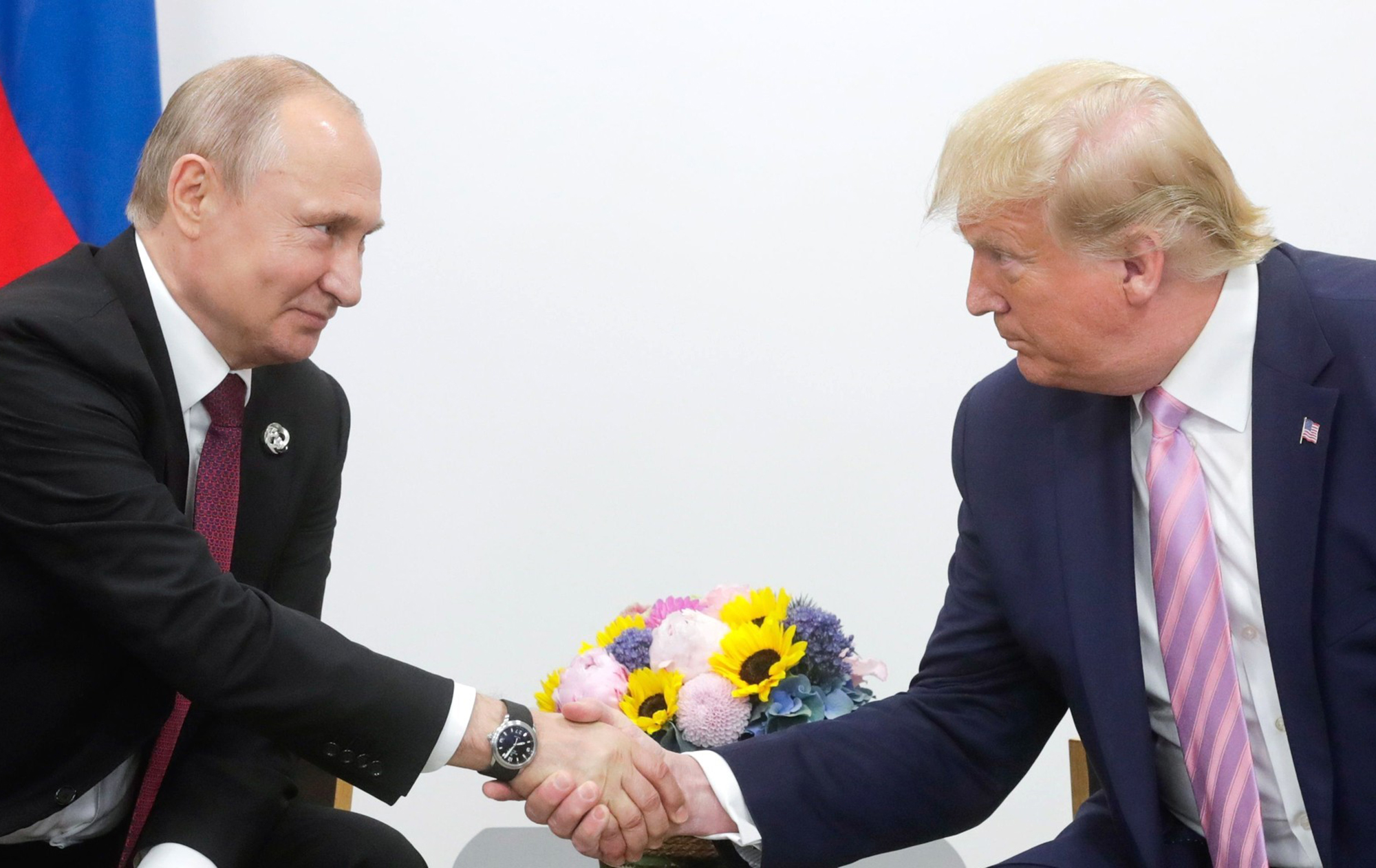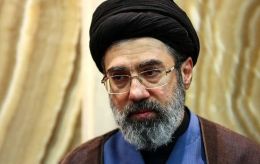Before and after: Has Trump's rhetoric on Ukraine and Putin changed?
 Photo: US President-elect Donald Trump (Getty Images)
Photo: US President-elect Donald Trump (Getty Images)
During his presidential campaign, Donald Trump frequently spoke about the war in Ukraine, often promising to end it within a day. However, after his election, the Ukrainian issue has remained on his agenda, but his tone and level of promises seem to have moderated.
RBC-Ukraine highlights key statements by Trump about Ukraine and Russian President Vladimir Putin, both before and after his election.
Contents:
- Trump and the war in Ukraine: How his rhetoric has changed
- What Trump said about Putin before and after the election
- What's the status of Trump's peace plan, and why Russia might oppose it
Trump and the war in Ukraine: How his rhetoric has changed
Trump said that if he were president, he would end the war in 24 hours.
"I know Zelenskyy very well, and I know Putin very well. And I had a good relationship with both of them. I will have the deal done in one day," he said before the election.
He also claimed that Ukraine couldn't win the war due to heavy losses and emphasized that Russian forces would never have attacked under his presidency. During debates with his opponent, Joe Biden, he criticized Putin's ultimatums.
"No, they are not acceptable. If we had a real president that was respected by Putin, he would have never invaded Ukraine," Trump stated.
In July 2024, he once again promised to quickly end the war - this time before officially assuming office.
"Before I even arrived at the Oval Office shortly after we win the presidency, I will have the horrible war between Russia and Ukraine settled," he assured.
Weeks before the election, Trump hinted at how he planned to achieve this. In his view, direct threats might help: to Putin, by driving oil prices down to $40 a barrel; to Zelenskyy, by halting military aid. However, he suggested that Ukraine's support could be strengthened if Russian President refused to negotiate.
Trump said that literally the same night as his victory became known, he would call Putin and Zelenskyy, and a deal would be done within 24 hours.
After meeting with Zelenskyy in New York, he said they both wanted a just end to the war. And after it became clear that he was returning to the White House, on the night of the election, he said that there would be no wars during his term.

Photo: After meeting with Zelenskyy, Trump said they both want a just end to the war (president.gov.ua)
After about a month and a half, it seems his stance becomes more pragmatic. Trump, as of now, likely hasn’t spoken with Vladimir Putin, but he remains committed to his previous position. However, he no longer talks about ending the war within 24 hours, and realistically, he may not be able to make significant moves before his inauguration on January 20, 2025.
Shortly after the election, Trump claimed he wouldn’t be a dictator except on the first day. His plan for Day One includes trying to bring Kyiv and Moscow to the negotiating table.
Following his Paris meeting with Zelenskyy in early December, the elected US President noted that Ukraine appeared ready for negotiations and urged an immediate ceasefire. He hinted that upon taking office, he might reduce American aid.
In an interview with Paris Match, he said that ending the war would be a top priority after January 20.
"I think we have to solve the Ukraine problem with Russia. Both those countries are losing numbers that nobody can believe. Hundreds of thousands of soldiers are being killed," Trump said.
Later, he criticized Joe Biden’s approval of Western long-range strikes deep into Russia. He did not rule out canceling such policies upon his return to the White House. However, in response to a direct question about whether he would abandon Ukraine, Trump said: "I want to reach an agreement, and the only way you're going to reach an agreement is not to abandon."
Last week, Trump even claimed there was "some progress" but did not provide details. "We’re going to get a little progress, it’s a tough one, it’s a nasty one, it’s nasty," he said, adding that rebuilding cities destroyed by Russia could take 100 years.
Future US special envoy Keith Kellogg has also mentioned the potential for peace talks between Russia and Ukraine. For more on how the team of the 47th President sees the war’s resolution, read the material by RBC-Ukraine.
Recently, speaking at the conservative forum Am Fest, Trump once again addressed the issue of wars. “I will end the war in Ukraine. I will stop the chaos in the Middle East. And I will prevent, I promise, World War III. And we are very close to World War III,” he said.
What Trump said about Putin before and after the election
Trump frequently emphasizes his purportedly good relationship with Vladimir Putin. Many experts and political analysts believe Trump has a unique respect for authoritarian leaders, whom he views as more amenable to swift deal-making.
Before the election, in an August interview with billionaire Elon Musk (who later joined Trump’s team), he claimed that the full-scale war began due to promises of Ukraine's NATO membership and that he allegedly tried to stop Putin.
Later, in another interview, he stated that during his first term, he had extensive discussions with Putin about Ukraine. "This was his dream. I talked to him about it." However, Trump believes that Putin would never have invaded Ukraine under his presidency.
In October, Trump unexpectedly claimed that he had supposedly threatened Putin with a strike on the center of Moscow and "his domes" if he invaded Ukraine. However, he did not specify when this occurred, likely referring to his presidency.
"I’m going to hit you right in the middle of fricking Moscow.’ I said, ‘We’re friends. I don’t want to do it, but I have no choice.’ I said, ‘You’re going to be hit so hard, and I’m going to take those domes right off your head," Trump said.
Trump said that Putin warned him about a full-scale invasion. And when accused of being friends with the Russian President, he replied that only sick people say that he is a friend of Russia or a Russian spy.

Photo: Trump hopes to negotiate with Putin to end the war in Ukraine (Getty Images)
After winning the US presidential election, Donald Trump's rhetoric has focused heavily on meeting and negotiating with Putin. In November, the US media reported that they had a telephone conversation, but this information was not confirmed.
At a recent press conference, Trump stated that negotiations with Putin are essential to ending the war in Ukraine, calling it the most horrific bloodshed the world has seen since World War II.
"It's got to stop. And we are trying to end this. We're gonna see. We'll be talking to President Putin, and we'll be talking to the representatives, Zelenskyy and representatives from Ukraine. We gotta stop it, it's carnage," he said, adding that a fair deal is needed to make this.
Last week, Putin stated he is ready to meet with Trump at any time. The reputable American media outlet The Washington Post reports that this meeting is likely to take place in 2025, but there is little hope for an agreement that would bring quick peace to Ukraine.
What's the status of Trump's peace plan, and why Russia might oppose it
The specifics of Donald Trump's peace plan for Ukraine remain unclear. Western media occasionally report various details, but the incoming US president is said to have three main proposals on the table - worked out by Keith Kellogg, Vice President-elect J.D. Vance, and former acting intelligence chief Richard Grenell.
The first is a freeze on hostilities along the contact line with a guarantee of arms supplies if Kyiv agrees to negotiations. The second is the creation of a “demilitarized zone” along the front line, with Russia retaining the occupied areas and Ukraine strengthening its military to prevent a new invasion. The third is the creation of autonomous zones on the territories already seized by Russia.
All three scenarios lack concrete details and seem more like conceptual frameworks than actionable peace plans. Furthermore, at least in terms of territorial concessions, they poorly align with Ukraine's position. While President Volodymyr Zelenskyy acknowledges that Ukraine currently lacks the strength to reclaim these areas militarily, the proposals still face significant resistance.
Some elements might eventually make it into Trump's finalized peace plan, while others may not. The full details of his strategy are still taking shape, but political expert Taras Zahorodnii suggests that Moscow doesn't like it anymore.
What we have heard from Trump's circle already doesn't sit well with the Russians. There are two main points: the fixation on the demarcation line and the assurance that Ukraine will not be disarmed. This does not suit the Russians," Zahorodnii said.
He recalled that Putin could only cease fire if Ukraine refused to join NATO and gave up Zaporizhzhia, Kherson, and Donetsk region to Russia, and the US recognized it as Russian territory.
"This nonsense will never happen, it contradicts existing positions. Trump makes it clear: Putin, if you want to talk to me, let's talk. About what? About the Pechenegs? About the Rurik dynasty and the fact that you want a sphere of influence in Europe on this basis? He will not listen to this nonsense," Zahorodnii added.
He pointed out that there is Plan B - Pompeo's plan. It involves providing Ukraine with extensive support, including a $500 billion lend-lease, lifting all restrictions on strikes against Russia, and engaging with Moscow from the position of February 24.
"These options have already been worked out, they just haven’t been formalized yet, but Trump isn’t president yet - there’s still a month. He will definitely target Russia's economy, not out of love for Ukraine, but due to the interests of American oil producers," Zahorodnii said.
Sources: Donald Trump's statements and a commentary by political expert Taras Zahorodnii for the RBC-Ukraine YouTube channel.



